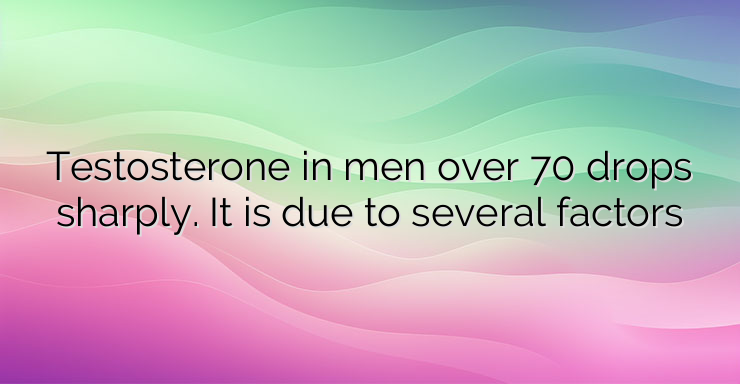The decline in testosterone levels in men after the age of 70 is due to multiple factors, some of which are body mass index, medical conditions, and relationship status, if any. The study, looking at the sharp drop in testosterone levels, was published in the journal Annals of Internal Medicine. The lead author is Prof. Boo Yeap from the Department of Endocrinology at the University of Western Australia in Perth. The analysis of data from nearly 25,000 men found that testosterone levels were relatively stable between the ages of 17 and 70. After 70, however, testosterone levels drop sharply. Although there is a significant rise in hormones produced by the pituitary gland that stimulate the production of testosterone in the testicles, testosterone falls. This indicates a violation of testosterone synthesis after the age of 70. A change could be due to a high body mass index – an indicator that determines the norm of weight depending on height. High levels of the index indicate obesity, and in men over the age of 70, obesity tends to be associated with lower testosterone levels. Relatedly, men who do not engage in any form of physical activity regularly (those who get less than 75 minutes of physical activity each week) also have reduced testosterone levels. These risk factors speak to the need for good health care in men after the age of 70. Maintaining a healthy weight includes healthy eating and physical activity. Another factor that lowers testosterone is smoking � regular smokers, and even ex-smokers, have reduced testosterone levels after the age of 70. Smoking damages the lungs and oral cavity, but there are other diseases that affect testosterone levels – hypertension, cancer, diabetes and cardiovascular. In addition to individual lifestyle, family also plays a role in testosterone levels � men with families have significantly lower testosterone levels than those without. One possible reason for this phenomenon is the significantly higher levels of stress in married life compared to living alone. References: Monaco, K. (2023, August 28) Testosterone Loss in Older Men: Factors Beyond Age in the Mix � Several lifestyle, health factors associated with declining levels. Retrieved 2023, August 29 from https://www.medpagetoday.com/endocrinology/generalendocrinology/106095 Yeap, B. (2023, August 29) Factors Associated With Circulating Sex Hormones in Men Individual Participant Data Meta-analyses. Retrieved 2023, August 29 from https://doi.org/10.7326/M23-0342 University of Western Australia. (2023, August 29) Landmark study defines factors influencing testosterone levels in men. Retrieved 2023, August 29 from https://www.uwa.edu.au/news/Article/2023/August/Landmark-study-defines-factors-influencing-testosterone-levels-in-men


Leave a Reply